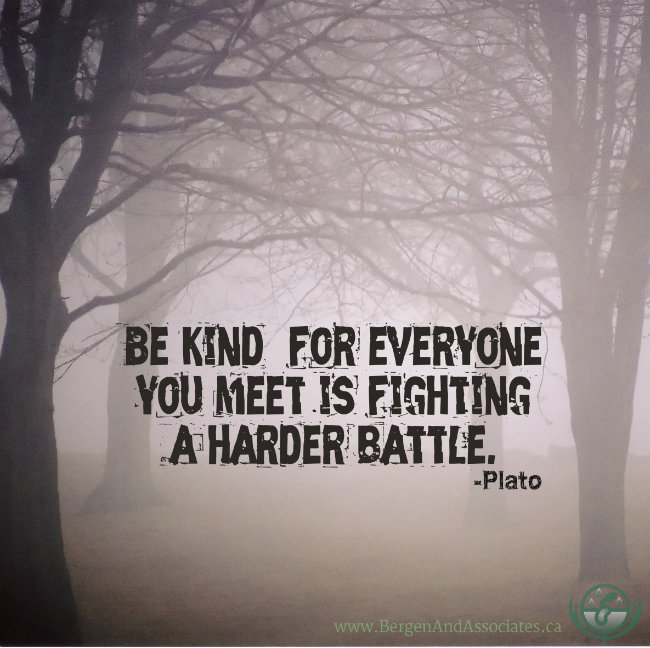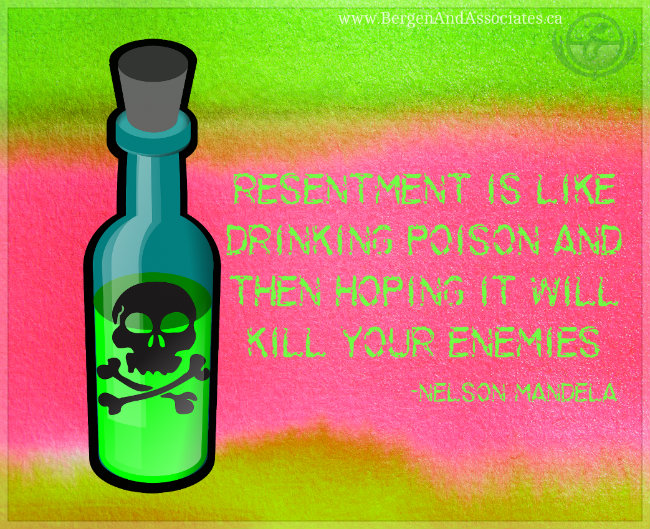
Complaining costs a soul…and being mindful of complaining can change your life.
The world conspired to have me think on complaining this last week. Dahlia Kurtz suggested a week ago that we talk about “complaining” for our weekly radio chat this week. She suggested an article to springboard off: I went 21 days Without Complaining and It Changed My Life. Only the day before, a buddy of mine emailed the same article to me to let me know about an experiment he decided to engage in.
The article outlined a practice–a thought experiment–first suggested byWill Bowen, a Kansas city minister:
Will designed a solution in the form of a simple purple bracelet, which he offered to his congregation with a challenge: go 21 days without complaining. Each time one of them complained, they had to switch the bracelet to their other wrist and start again from day 0. It was simple but effective metacognitive awareness training.
The idea was premised on the knowledge that word choice determined thought choice, which determines emotions and actions.
Think of it this way…imagine your brain as a series of roads…some are regular roads, some are superhighways, and some are dirt paths. Habits become formed when roads are used repeatedly…and as with all traffic…when roads are heavily used, the system adds extra lanes and reinforces them to withstand heavy traffic. Other roads, as they are used less become over grown, develop cracks with weeds growing up through them, and the shoulders began to disappear…the less the road is used, the more it deteriorates, and so it is used even less.
The idea is that complaining puts our brains into negative space. Most of us, if we are conscious about our complaining/gossiping/criticizing, we’d be surprised at how negative we are in our thoughts. By switching the band from one wrist to another when we complain, we become aware of our negativity…and as mindfulness is increased, we quickly move to being able to proactively choose to not complain and therefore, be in a more neutral or constructive space.
So…my buddy has been giving me updates…He would be quite quick to say he is generally a “cup half empty” kinda guy. He had to switch the band three times in the first several hours as he noticed himself muttering under his breath about lousy parking and poor driving of other drivers while on the road. However, when he began work later that day…and corporate culture is a great place to exchange complaining banter with colleagues about how lousy the company is, about how other staff are lousy at their jobs, and to complain about family with each other. He noticed that he was able to stop himself several times at work from engaging in this sort of conversation.
Several days in, he was choosing not to complain in heavy traffic anymore as he was catching himself begin to go down that road, and he would choose not to criticize others’ driving. To his surprise (he is a cynical sort)…he found that his time in the car was more pleasant when he chose not to be grumpy on the drive.
He is recognizing the value of the thought experiment and is now playing with ideas to remain authentically engaged in live without complaining. To be incessantly cheerful about all of life would be foolish and ignorant. Life has challenges, and to not recognize difficulties and hurts would be ignorant and potentially dangerous.
So…some ideas to curb complaining:
1. Don’t sweat the small stuff:
I tried this experiment too. Shortly after beginning it, I happened to pass by a cute house that had an “open house” sign on it…and I had some time and interest and stopped by just as it was starting. I noticed the real estate agent parked right in front of the house to take open house signs out of the trunk. And I immediately thought to myself, “How rude for the host to take the best parking spot. It’s bad for business to not leave it open for a buyer, and just inconsiderate for those who want to come see.” Busted…I switched wrists 20 minutes after I started.
But seriously, what’s the big deal? What’s the damage involved in this act? What business is it of mine where the agent would park? This was me having a negative opinion about something that was quite inconsequential…why let myself get affected by something that doesn’t involve me, and is so minor?
2. Practice empathy:
Think about the last time that you acted in a way, that if another was watching, they would say you acted like a jerk. Maybe you went through a very yellow light, or were impatient standing in line…or even cut ahead in line. Now think about what was happening that created the context for that behaviour.
There are jerks in this world. Absolutely. But they are relatively rare.
Generally, when people do something that looks rude or nasty or hurtful. there is a reason behind it…we may just not be aware. A boss is harsh and demanding…but can an employee know how the boss is getting pressured from his/her boss to produce “or else”? Someone that cuts you off in traffic…maybe they are late for daycare pickup…and we know how kids can be when a parent is late. I was upset about the service a company was providing to us, and I wrote a letter of concern…only to find out that a critical piece of the work was being done by someone who had just been diagnosed with terminal cancer.

3. Be aware of the suffering of humanity
The temptation of complaining is to believe that we are uniquely suffering by the injustices of the world, which has complaining “make sense”.
By being aware of how others may also have to deal with hassles, it feels a little less lonely to struggle. By being aware of how others may only just wish to have your hassles, it helps to provide a context that creates for gratitude rather than complaint. Dirty laundry means there are clothes to wear, an empty gas tank means there is a car, and fellow employees who avoid work that trickles down to your desk unfair means there is a paycheck coming in.
This Eeyore-type buddy of mine was facing some distasteful tasks at work this week…and on Monday he was grumbling to himself about having to carry out these tasks. Later on Monday, he became aware of a tragedy at a neighbouring worksite where there was a workplace fatality. He texted me Monday evening, suddenly profoundly grateful that he was alive to be in a position to carry out the distasteful tasks.
4. Be creative and playful with a sense of fun
Situations can be grumped about…or giggled at. There can be a “other side of the coin” perspective that can be lost if the focus is solely on being critical. For example, you may be upset that you end up having to do the company presentation to the clients–but it may put you in a position to be noticed and considered for the next promotion.
My Eeyore buddy is finding himself quite the jokester…he texted me this week that the annual, dull and dry safety seminar that he needed to attend all day set him up for a fantastic night’s sleep. He texted this with a wink, and a specific note that he had found a way to be candid about his experience without complaining about it.
I don’t think it was lost on him tho, that he was joking about something that he would have ordinarily snarled about…and that his perspective had authentically changed.
5. Be constructive
Tim Ferriss, the author of the article I referred to earlier, found that if he noticed something and found a way to be positive and constructive about it…finding a strategy for improvement or some other way to have it be productive to think about and comment on, it reformed the complaint into awareness and more precise thinking that was helpful.
He gives an example:
Complaint: “John can be such an a**hole. Totally uncalled for.”
instead becomes:
Constructive: “John was a bit of muppet in there, wasn’t he? I suppose I’ll just send the e-mails directly to Mary in engineering for the next two weeks to get buy-in, then he’ll have to agree.”
The idea is to reframe complaints as opportunities to find better strategies. It moves a person from being victim to being proactive.
6. Be aware of the cost of complaining

I think complaining is first cousins with resentment. Who really suffers with complaining?
The complainer.
Complaining puts your head into negative space in an unproductive way. When done with friends and co-workers, it may create connection…but it’s not a positive one.
Put an elastic band around your wrist…Switch it every time you whine, complain, criticize or gossip. Be mindful of the need to switch…and challenge yourself to see if you can avoid switching the band…and notice what happens when the superhighways of complaints gradually turn into dirt roads.
Will Bowen has given out almost 6 million bracelets of folks who found the challenge worthwhile.
Wanna change your life? You in?






Write a Comment